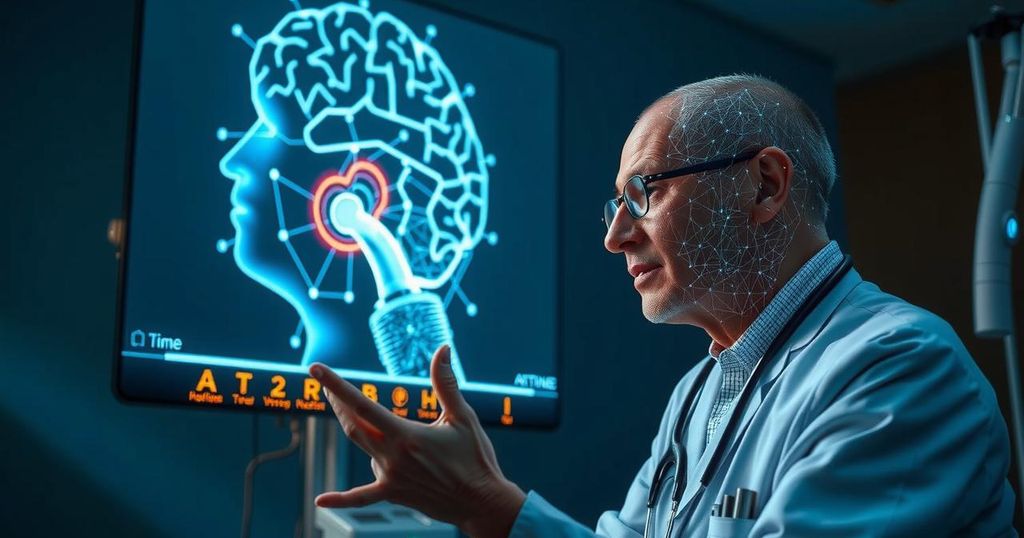Science
ACCENTURE PROFESSOR OF BIOMEDICAL INFORMATICS AND, CENTER, CENTER FOR, DBMI, DEPARTMENT OF BIOMEDICAL INFORMATICS, EMBI, ERIC HORVITZ, HEALTHCARE, HORVITZ, MEDICINE, MENTAL HEALTH, NORTH AMERICA, PANDEMIC, PETER EMBÍ, PETER EMBI, RESEARCH, SCIENCE, UNITED STATES, VANDERBILT UNIVERSITY MEDICAL CENTER, VENTURE CAPITAL
Rajesh Choudhury
0 Comments
Empowering Patients: The Key to Successful AI in Healthcare
A recent symposium at Vanderbilt University highlighted the critical role of patient voices in shaping the future of AI in healthcare. Experts emphasized the need for human-centered approaches in developing AI solutions to address healthcare disparities and improve patient outcomes. Through collaboration and engaging patients in the process, the promise of AI can be realized, fostering a more equitable healthcare landscape.
Artificial intelligence (AI) is revolutionizing healthcare, promising better outcomes and more personalized patient care. However, this vision will only materialize if patients’ voices are heard in the design and implementation processes. At a recent symposium hosted by Vanderbilt University Medical Center, experts gathered to discuss the intersection of AI and human-centered solutions, stressing that patients must share their insights to enhance the effectiveness of AI technologies.
Peter Embí, MD, emphasized the urgent need to address the unmet healthcare needs of many individuals, highlighting AI’s crucial role in bridging those gaps. As the symposium unfolded, attendees learned about advancements in AI, including sophisticated models like OpenAI’s GPT series, which can handle complex tasks and assist researchers in proposing new experiments. Eric Horvitz, Microsoft’s chief scientific officer, pointed out that enhancing human-computer interaction is essential for these systems to support clinical decision-making.
Vanderbilt’s AI Patient and Family Advisory Group serves as a vital platform ensuring that patient experiences shape AI development in healthcare. By inviting patients to engage in discussions and decision-making, the group acknowledges that understanding patients as well as patients understand themselves is key to fostering better healthcare practices.
Experts like Bradley Malin, PhD, foresee AI augmenting human capabilities rather than replacing them. While there are concerns about unforeseen consequences of AI in medical contexts, collaboration across the board—including insights from patients—can lead to innovative solutions that enhance care and equity.
In the face of persistent disparities in healthcare access, leaders like Jeffrey Upperman, MD, urge collective action and meaningful conversations among healthcare professionals, patients, and families. The integration of AI into healthcare must be undertaken with caution and a commitment to social responsibility. As advancements continue to surge, an unwavering focus on patient advocacy and human-centered design will be paramount for success.
In recent years, artificial intelligence has emerged as a powerful force in various domains, particularly in healthcare. The potential of AI to transform patient care and operational efficiencies is immense. However, as AI technologies evolve, it is crucial to integrate the perspectives and experiences of patients to ensure these innovations are effective, safe, and equitable. The upcoming symposium at Vanderbilt University Medical Center explored these themes, bringing together experts to emphasize the importance of patient involvement in the advancement of AI in healthcare.
The integration of artificial intelligence into healthcare is not just about technological advancements; it’s fundamentally about people—particularly patients. By ensuring that patient voices are pivotal in the development of AI tools, healthcare providers can better meet the diverse needs of those they serve, ultimately transforming healthcare into a more responsive and equitable system. Additionally, ongoing collaboration and engagement among stakeholders will be essential as we navigate the complexities of AI in clinical environments.
Original Source: news.vumc.org




Post Comment